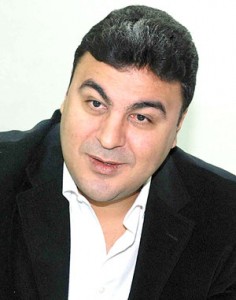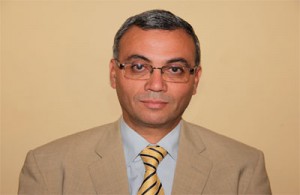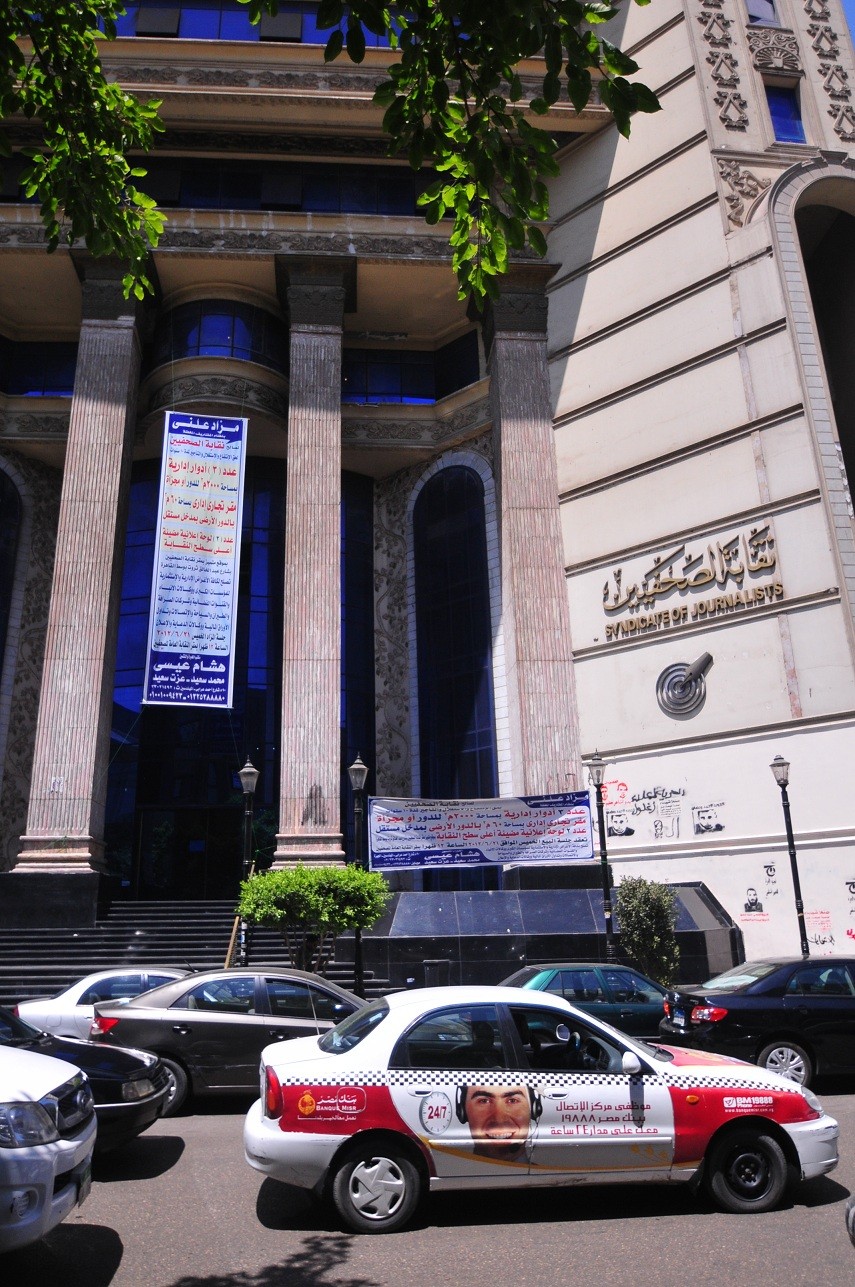One columnist addresses the authorities’ control of media apparatus, and the other discusses how people deny the role of Islamists in the revolution.
Yasser Abdel Aziz
‘Ikhwanization’ of national media
Al-Masry Al-Youm
Columnist Yasser Abdel Aziz discusses the penetration of Muslim Brotherhood policies and practices into public media bodies. He recalls that many fellow journalists have complained to him about the issue, admitting that some of their work has been censored or that they have been instructed to address only certain issues.
He adds that after he gave an interview to a prerecorded television show, some of what he had said was deleted. He then recalls being prevented from participating in another show, as per the show’s producer’s instructions. “The Minister of Information contacted me and denied that I have been barred from the show,” Abdel Aziz says.
He mentions that the Muslim Brotherhood abhors the term “Ikhwanisation,” and they deny any plans to control the media. Their proof is that there are no Muslim Brotherhood members working in public media bodies. The columnist replies to that by listing the two things needed to control the media: firstly controlling hiring for top-tier positions and secondly financing media bodies.
The columnist claims that while the Minister of Information controls national television, the Shura Council controls national newspapers. According to the columnist, there are 28 television channels, nine radio stations, and eight journalistic organisations issuing 55 newspapers.
He then points to the latest cover of Akhbar Al-Adab (Literature News), which features Khairat El-Shater, with a quote: “In keeping with the cultural role of businessmen, will Khairat El-Shater reclaim Egypt’s cultural soul with his program Al Gama’a?”
The columnist comments that it is “a total farce” for a national magazine, financed by the people’s taxes, to be used to polish the image of Muslim Brotherhood member Al-Shater.
He concludes that the Brotherhood-oriented Minister of Information, Article 206 of the constitution, the legally-contested Shura Council authority over newspapers, and the controlling of hiring and financing processes in the media guarantee that the media serves the Muslim Brotherhood’s agenda.
Waleed Shalaby
Public failures and the distortion of history
Freedom and Justice Party Newspaper
Columnist Waleed Shalaby begins by saying “the Egyptian political scene is now witnessing a malicious attempt to deliberately distort the events of the revolution”. He finds it strange that some people speak of the Brotherhood’s role in the revolution and say that they were “the spark” of it, while others ask: “Where were the Islamists when we were being oppressed and tortured by the former regime?”
He blames them for not asking about the “whereabouts” of Islamists during that period: “Were they in five-star hotels or in prisons and detention facilities?” He also blames them for not asking about the “real reasons behind the oppression of Islamists and their exclusion from specific jobs”.
He dubs those who attempt to distort the Islamists’ role in the revolution as failures “desperately seeking leadership and popularity after failing to affect the Egyptian street”.
He also mentions those who claim that the Muslim Brotherhood only took part in the revolution with the Battle of the Camels on 2 February 2011. “They forget that the Muslim Brotherhood members were seen and heard by all, and that is only denied by the ungrateful.”
He mentions a statement issued by the Muslim Brotherhood on 23 January 2011, which condones the State Security’s summoning of Muslim Brotherhood leaders in different governorates, and its feeble attempts to prevent them from participating in revolutionary protests.
He comments that the statement was issued during a time when “many of those who issued revolutionary statements were frightened of the regime’s aggression”. He then mentions that people have forgotten the High Court protest, where many leaders of the Muslim Brotherhood were present.
“The Muslim Brotherhood’s resistance of the previous regime was for the love of Egypt and its people, and out of obedience to God by refusing injustice, tyranny and encroachment upon God’s laws and the squandering of freedom,” Shalaby writes.
He adds that Islamic political parties have endured years of injustice, oppression, imprisonment, exile and displacement. “They were denied the simplest rights that were guaranteed by the constitution and law when those who are cosying up to the revolution were not yet born or were kissing up to the previous regime,” Shalaby says.
He also mentions that there was true resistance. He adds that some people have made heroes out of the remnants of the previous regime. Shalaby adds that he would not put it past such people to name Mubarak and his entourage as the real spark and protectors of the revolution. He then says that Egyptian history will not be distorted because the people are aware of events and know what really happened. “God save Egypt, its people and its president from every adversity and hardship,” Shalaby concludes.





